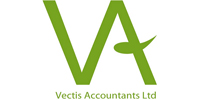Most of us have bought or sold items on eBay, Etsy, Vinted and other online marketplaces but when does occasional online buying and selling turn into trading? And when do you have to register as a trader with HMRC and pay tax on the money you make selling items online?
Anyone who earns over the £1,000 trading allowance during a tax year is required to declare their earnings to HMRC. This is also the case if you sell items bought specifically to resell, made to sell, or sold for other people via ecommerce sites and marketplaces such as eBay, Etsy and Vinted.
However, since 1 January 2024, HMRC has instructed these marketplaces to record how much income sellers are making and report this financial data directly to HMRC (although not until the end of January 2025). This will allow HMRC to look for discrepancies between the earnings reported via a self assessment tax return and the ecommerce site.
I've sold stuff on eBay. Do I have to pay tax?
If you're having a clear-out of clutter at home, you don't have to pay tax on the items you sell on online platforms such as eBay, Vinted or Depop. Even if your clutter sells for quite a lot - as far as HMRC is concerned, you only have to pay tax on what you buy to sell on for a profit, make to sell, or sell for other people.
Anything you sell that is yours - for instance, you have already used it or bought it by accident - is not taxable. Neither do you need to set up as a business.
Paying tax as an eBay trader
The moment you buy, make or take anything with the intention of selling it on you are a business and must register with HMRC as a business, whether you choose to be self-employed or even a limited company. You can of course be both a private and business seller, in which case you should use different eBay and bank accounts to keep them separate.
Does my side hustle selling online count?
HMRC allows you to earn up to £1,000 from what it describes as "occasional jobs" selling goods and services you provide yourself without having to pay tax on that income. This is called a Trading Allowance. If you earn more than that, you must declare your income and pay tax on it but you are still entitled to a tax exemption of up to £1,000 on income from trading. Once you exceed that threshold, it can be subject to income tax. HMRC has instructed the online marketplace to record how much income people are making and report it. This means that HMRC can then investigate and pursue you for unpaid tax.
Do I need to register for VAT for my eBay sales?
VAT registration is compulsory for all types of business once you reach the VAT threshold or expect to exceed the VAT taxable turnover of £90,000 from 1 April 2024 (previously £85,000) in any 12-month period.
You need to think about VAT registration if your eBay business turnover, including postage costs to customers, looks as if it might exceed the VAT registration threshold over the year.
There are additional VAT registration requirements by law if you are involved in importing or exporting. VAT registration may be required in other countries depending on the value and type of goods you sell or acquire.
Read official advice on working for yourself on the HMRC pages of the GOV.UK website.
Am I responsible for paying tax on my online sales?
As an eBay seller, you are responsible for paying any applicable taxes associated with using eBay.
Will I owe capital gains tax on my eBay sales?
If you sell valuable items on eBay, you may have to pay capital gains tax (CGT) on them. Anything that you sell (apart from your car) that's worth more than £6,000 is liable for CGT – but you only pay capital gains tax on the profit.
Will eBay report my sales to HMRC?
It's important to note that your online sales activity is very easy to monitor; the more you sell, the more obvious it is to HMRC that you are using online platforms such as eBay to run a business and make a profit. In any event, HMRC has instructed online marketplaces to record and report how much income people are making so that they can investigate and pursue unpaid taxes.
